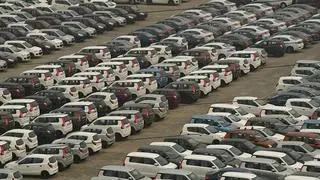Bharat Sanchar Nigam Ltd (BSNL) has launched a slew of offers since the NDA government came to power in 2014. It has also changed strategy to retain customers following the entry of Reliance Jio in 2016. In an interview with BusinessLine, Anupam Shrivastava, Chairman and Managing Director, said BSNL will not lag behind any global company in launching 5G by 2020. Excerpts:
Do you think the market is stabilised now since Jio’s entry?
Market disruption has been felt by all the operators, as you can see from their financials. Also, these companies are debt laden. But, in all this, BSNL’s customer market share has improved because we followed a ‘connected’ strategy in the last three years.
At around ₹16,000 crore, our salary expenses take up almost 55 per cent of the topline annually and still we pay dividend. Salaries are pulling down BSNL’s financial performance. We are in the corrective phase, with several offers for customers to compete with the new entrant.
What about broadband services?
To offer higher broadband speed we strategised to give it through wireless. For this we have tied up with various companies such as Tikona and B4S, where they take the broadband from us and relay it to various areas with speed of 30-100 Mbps under a revenue-sharing model.
In future we will also do a capex model with further investment, through wireless or radio model. Here, we are also focussed on FTTH (fibre to the home) this year as competition is likely to come from other players, too. We are offering speed up to 1GBPS in that. We have also realised that cable operators are also being threatened by the data speed provided through the communication network, as today, same television channel can come through mobile communication operator. Therefore, we have tied up with multiple service operators and local cable operators to offer the broadband services. They are taking the broadband from our access points and through their cable, they are providing the broadband, along with their channels to consumers. I am keeping my fingers crossed.
We have spoken to the cable operators’ association and they have promised us that they will generate 10 times the connections that BSNL has given in the last year. Maharashtra, Tamil Nadu, Uttar Pradesh, Punjab and Haryana are a few States to name. Around 70-80 per cent of rural areas get network through cable operators, so we believe a success story there.
What is BSNL’s plan on 5G?
In mobile, BSNL has the largest 3G network and we have launched 4G on the basis of 3G. Now we are are waiting for spectrum on a equity infusions/payment basis. We will also be launching 4G services soon. We are now number one in providing Wi-Fi services in the public domain.
We have already got 25,000 Wi-Fi hotspots across the country including all tourist places like Taj Mahal, Khajuraho, Varanasi, Konark and Kamakhya Temple.
We are targeting one lakh connections by this year-end. The government will give us the spectrum (2,100 MHz for 4G) at the highest auction-determined price. This is been worked out by the Ministry as BSNL cannot participate in the auctions. The cost may be about ₹17,000 crore, raised via equity and internal resources.
India saw 3G almost seven years after it was globally available. BSNL launched it first in India. India launched 4G, too, four years after the rest of the world. We would like to launch 5G, which is a Herculean task. We would like to launch it along with everybody in 2020. That is why we are building tie-ups with various companies like Nokia, ZTE and NTT.
What will the tariff plan be like when 5G is launched?
Soon, the concept of rupees per GB will cease to exist. Tariff will be on the basis of the product and there is a fixed cost to that. The customer can use as many services as they can from what they pay. So services will decide the tariff, which is happening the world over.
Japan is expected to be the first country to launch 5G, during the Olympics. I think 5G will be driven by Asia — Japan, South Korea, China and India.
What innovations are happening around the landline business?
We will soon launch landline calling through the Wi-Fi network (Voice over Internet Protocol) via the BSNL app. We will call it ‘Wings’. So all the benefits of landline will come in this mobile app. BSNL customers going abroad can also utilise 64 million Wi-Fi hotspots worldwide at an affordable rate of ₹1,999. We recently tied up with iPass for that. This way, they won’t miss any landline call.
How long will it take for the tower subsidiary to be operational?
The company has been formed and the management is also being decided. The transfer of assets is going on. But there is strong opposition from the unions and associations and we are in talks with them. About 1,600 employees may go there and the rest will be outsourced.
How about the number of employees in BSNL? From more than 3.25 lakh in 2000, it has come down to around 1.85 lakh. Will you be hiring?
Hiring is going in a very small level — around 3,000 junior engineers. With people retiring we may come down by 50 per cent from the current level in five years. Around 16,000 employees will be retiring every year from next year.








Comments
Comments have to be in English, and in full sentences. They cannot be abusive or personal. Please abide by our community guidelines for posting your comments.
We have migrated to a new commenting platform. If you are already a registered user of TheHindu Businessline and logged in, you may continue to engage with our articles. If you do not have an account please register and login to post comments. Users can access their older comments by logging into their accounts on Vuukle.